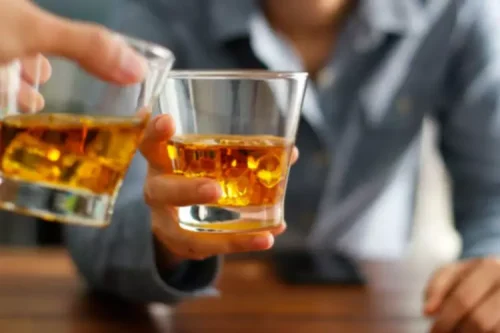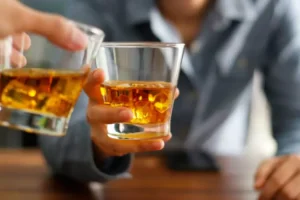
Unless you regain your ability to cope with stress, the chances of developing an anxiety disorder remain high. According to a 2019 paper, panic disorder has a strong association with AUD. People with AUD may have a higher risk of developing panic disorder, which can cause unexpected, recurring panic attacks. People with severe anxiety disorders may be especially at risk of developing AUD. The sequential, parallel, and integrated models each are beneficial in certain respects, and each method should be considered a valuable option in the practitioner’s toolkit.
Watch your alcohol consumption
- However, one study found no effect of buspirone on either anxiety or alcohol use (Malcolm et al. 1992).
- As well as being an unhealthy coping mechanism, cases of alcohol-induced panic attacks prove that alcohol can actually be the cause of anxiety and panic rather than the cure.
Dizziness or lightheadedness may occur, especially when standing up quickly. Long-term use can result in permanent changes to brain structure and function. The fact that all these physiological changes can cause symptoms so similar to those of a panic attack can trick your brain into having a real one.
How to Deal with Anxiety After Quitting Drinking?
- People can usually manage all types of anxiety by using a combination of lifestyle changes, medications, and therapy rather than alcohol.
- Discover how alcohol and anxiety may be interlinked, including why panic attacks and anxiety symptoms may occur after drinking alcohol.
- If you are experiencing regular panic attacks, you need to ask for support.
- Working with a therapist generally involves regular talk therapy sessions where you discuss your feelings, problem-solving strategies, and coping mechanisms to help with your condition.
Recommendations to treat both anxiety and AUDs therefore appear warranted on both theoretical and empirical grounds. The literature for treating dual problem specifies three primary approaches, including the sequential, parallel, and integrated models (for a comparison, see table 3). Compared side by side, these proposed causal models provide competing explanations for the joint development of anxiety disorders and AUDs.
Do you Suffer From Depression After Giving up Alcohol?

For example, a person might have started feeling more relaxed after just one glass of wine. As time goes on, however, they might find they need two, three, or more glasses of alcohol to get the same feeling. If they continue to use alcohol to help them feel more relaxed or at ease, they might eventually feel the need to avoid any social situations where they would be unable to drink. Another proposed theory refers to an expectancy component in people with anxiety who use alcohol. In this situation, a person expects to get relief from their anxiety symptoms when they consume alcohol because of its effect on the central nervous system (CNS). Alcohol can produce a sense of euphoria and decrease a person’s inhibition.

Remember, it’s not just alcohol which can causes symptoms that lead to panic attacks. Excessive intake of other drugs and food, including caffeine and sugar, may also be triggers. If you are experiencing regular panic attacks, you need to ask for support. Speaking with friends and family can help them prepare to support you when a panic attack strikes. It is also important that your seek support from your GP, who will talk you through available treatment options. Drinking is commonly used to numb anxious thoughts, and yet paradoxically alcohol can cause more panic attacks to occur.

Heavy drinking depletes essential nutrients, potentially intensifying anxiety. Alcohol interferes with the body’s ability to absorb and utilize vitamins and minerals, leading to deficiencies that can affect mood regulation. Eating before drinking slows alcohol absorption, reducing its impact on anxiety. B vitamins, particularly B1 and B6, support nervous system function and may help alleviate alcohol-related anxiety. Magnesium-rich foods like nuts and leafy greens can also have a calming effect.
Risk Factors for Anxiety
The interaction between pathologic alcohol use and enhanced life stress can lead to anxiety in at least two ways. First, the consistent presence of social disturbances may activate and intensify anxiety symptoms among these already vulnerable individuals. Second, alcohol use in the presence of stress stimuli may interfere with extinction-based learning necessary for normal adaptation to stressors. Thus, hazardous drinking can lead to anxiety through a noxious combination of greater levels of life stress coupled with relatively poor coping skills. Conversely, excessive alcohol consumption can increase the risk of developing anxiety disorders, creating a vicious cycle of co-occurring disorders.
- Thus, the status of the science underpinning the mutual maintenance hypothesis at this time only yields indirect agreement.
- Panic attacks may come on suddenly and without warning at first, but over time, they’re usually triggered by certain situations.
- In addition, there is a risk of an electrolyte imbalance involving decreased sodium concentrations in the blood (i.e., hyponatremia), which can reduce the seizure threshold.
- Generalized anxiety disorder involves chronic, exaggerated worry about everyday life.
- Self-medicating your panic attacks with drink can leave you psychologically dependent on alcohol because the short-term sedative effects can be addictive.
- This can even affect those that never intentionally used alcohol to cope with stress.
Social embarrassment

For example, they were less likely alcohol panic attacks to speak up in group therapy, attend a 12-step meeting, or seek sponsorship within a 12-step group. In contrast, no differences in relapse rates were found among the men with or without social phobia in the study. Interestingly, socially phobic women were less likely than women without social phobia to obtain an Alcoholics Anonymous sponsor, which may help explain the poor outcomes for TSF among this subgroup.




 115 N 3rd St Sterling, CO 80751, USA
115 N 3rd St Sterling, CO 80751, USA